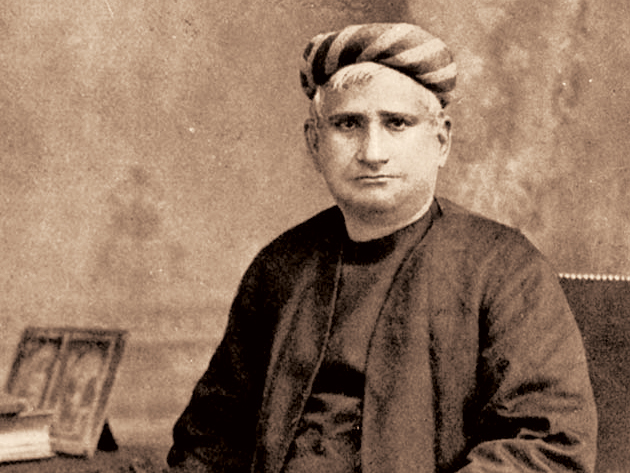The Wire, notorious for its biased Journalism has yet again ignited a controversial subject concerning the Great Indian poet Bankim Chandra Chatterjee who penned Vande Matram, the National Song of India. On the 2nd of February, The Wire uploaded a conversation titled ‘Hum Bharat ke log vs RSS’ on its Youtube Channel featuring Delhi University’s Hindi Professor Apoorvanand, Rajya Sabha Member and senior advocate Kapil Sibal, The Wire’s editor Seema Chishti and author Dhirendra Jha, all residing on the left side of the political spectrum.
As the title suggests, the conversation released by The Wire is an attempt to portray RSS alien to the Freedom Struggle. During the course of the discussion Marxist Professor Apoorvanand who has a history of standing against Hindu interests claimed that the Hindutva leaders and scholars were sympathetic to the British rule as it was Britishers who made Hindus free from the oppressive rule of Muslims.
Apoorvanand claimed that Bankim Chandra Chatterjee, in his Bengali Historic Novel Anandamath, appears to accept the British narrative that they had come to liberate Hindus from the oppression of Islamic rule. He suggests that Bankim Chandra Chatterjee, influenced by the colonial discourse, portrays the British as a force of salvation rather than subjugation.
Liberals at Wire have found a new enemy
Seems they think Bankim Chandra Chatterjee was a British agent!
The guy who wrote Vande Mataram is also a traitor to India now?
Maybe they will say Sid Varadarajan is the biggest Indian patriot… pic.twitter.com/uoldTtJ1yR
— Abhishek (@AbhishBanerj) February 3, 2025
The claims of the Marxist professor fall flat when examined in the light of a thorough reading of Anandamath. It is possible that Apoorvanand, driven by his ideological inclinations, has not fully grasped the deeper nuances of Bankim Chandra Chatterjee’s work. His Marxist leanings may have led him to approach the text with preconceived notions, particularly against the civilisational nationalism theme that Anandamath embodies.
Bankim Chandra Chattopadhyay’s Anandamath came out in the year 1882 and is set during the late 18th-century Sannyasi Rebellion. The novel portrays Hindu ascetics resisting both the oppressive Mughal and British rule in Bengal. While some critics including Apoorvanand argue that Bankim Chandra Chatterjee favoured the British and positioned them as a lesser evil compared to the Nawabs, his work does not endorse colonial rule but instead envisions a free and self-reliant India. Even when Satyananda, the leader of the rebels, is advised to halt the struggle, it is not out of admiration for the British but a strategic acknowledgment that India must first regain cultural and moral strength before achieving complete sovereignty.
In the final chapters, the protagonist Mahendra and the sage-like figure Satyananda acknowledge that the time for armed rebellion is over and that the British might bring stability. However this must be seen as strategic realism rather than admiration. Bankim Chandra believed that direct resistance to the British was impractical at that time. Furthermore, Bankim’s nationalism was rooted in the idea of a glorious Indian past. His portrayal of British rule as temporarily necessary for India’s regeneration does not equate to support but rather a strategic historical vision. In reality, Anandamath was so influential in fostering nationalist sentiments that British authorities viewed it with suspicion, and it was later banned during the freedom struggle.
Thus, far from being a pro-British text, Anandamath is a call for national resurgence, portraying the struggle for India’s self-rule while inspiring generations of revolutionaries against colonial oppression. The novel’s most iconic contribution, Vande Mataram, became the rallying cry of the Indian independence movement, demonstrating its strong anti-colonial spirit.
